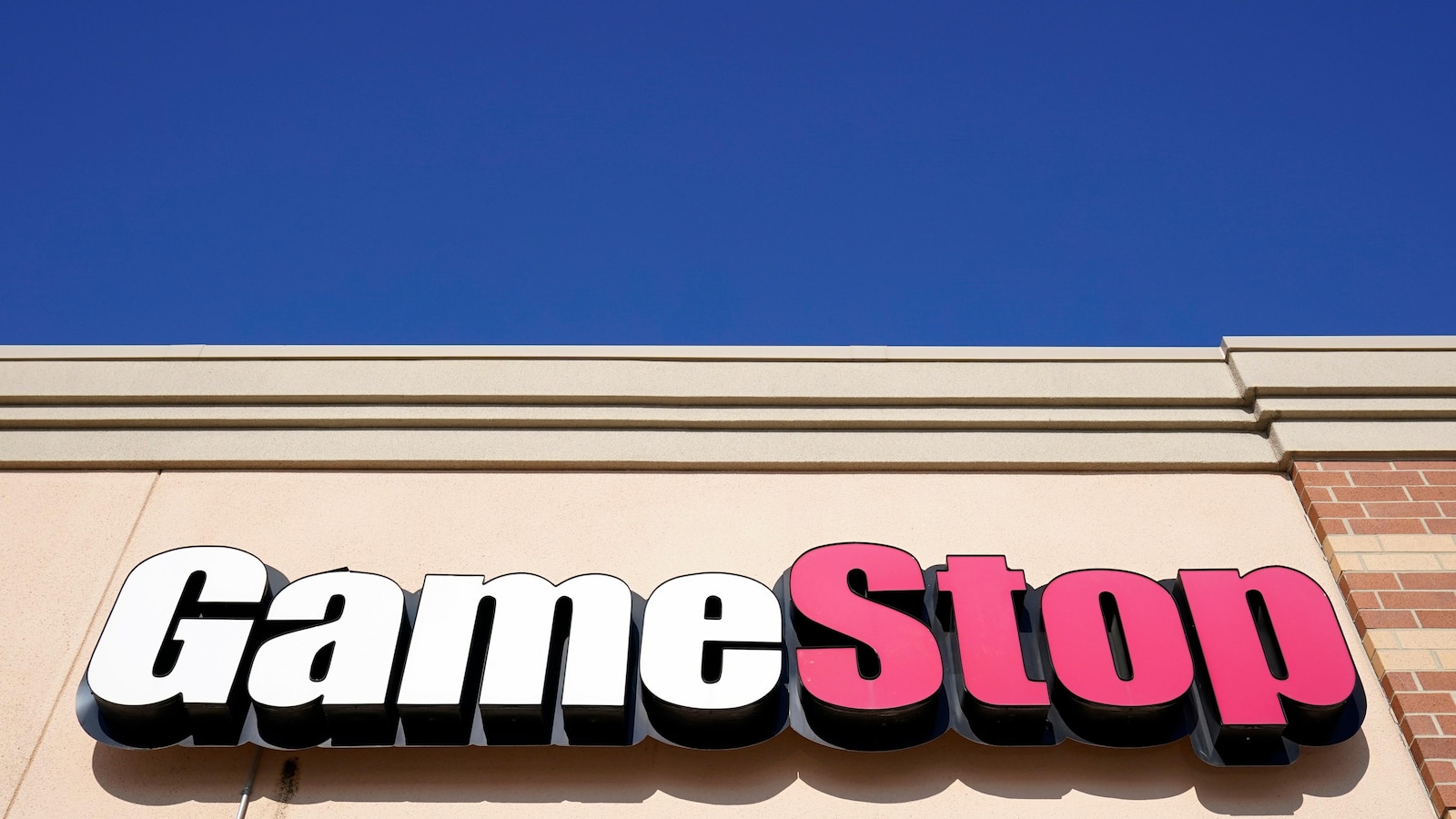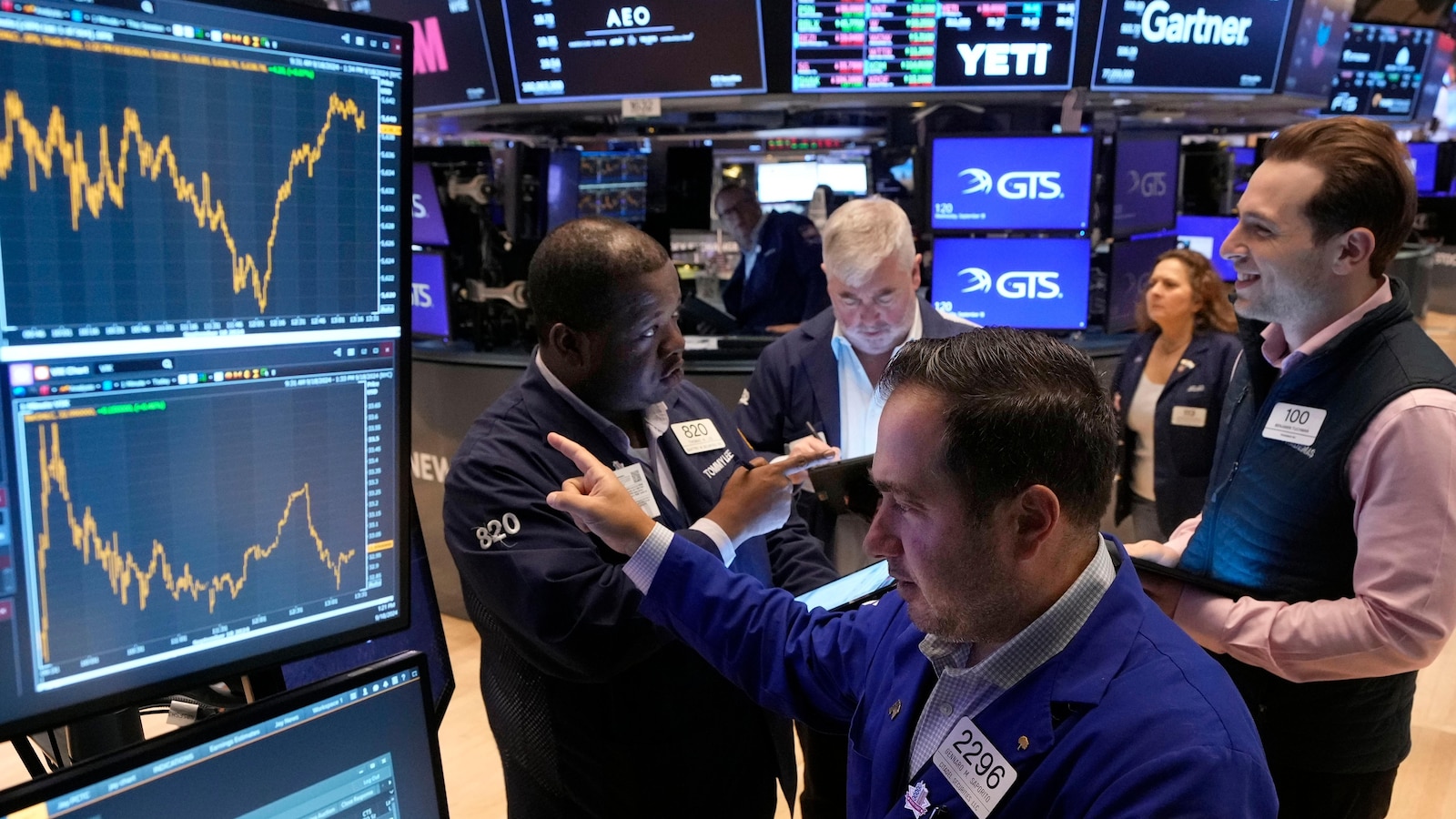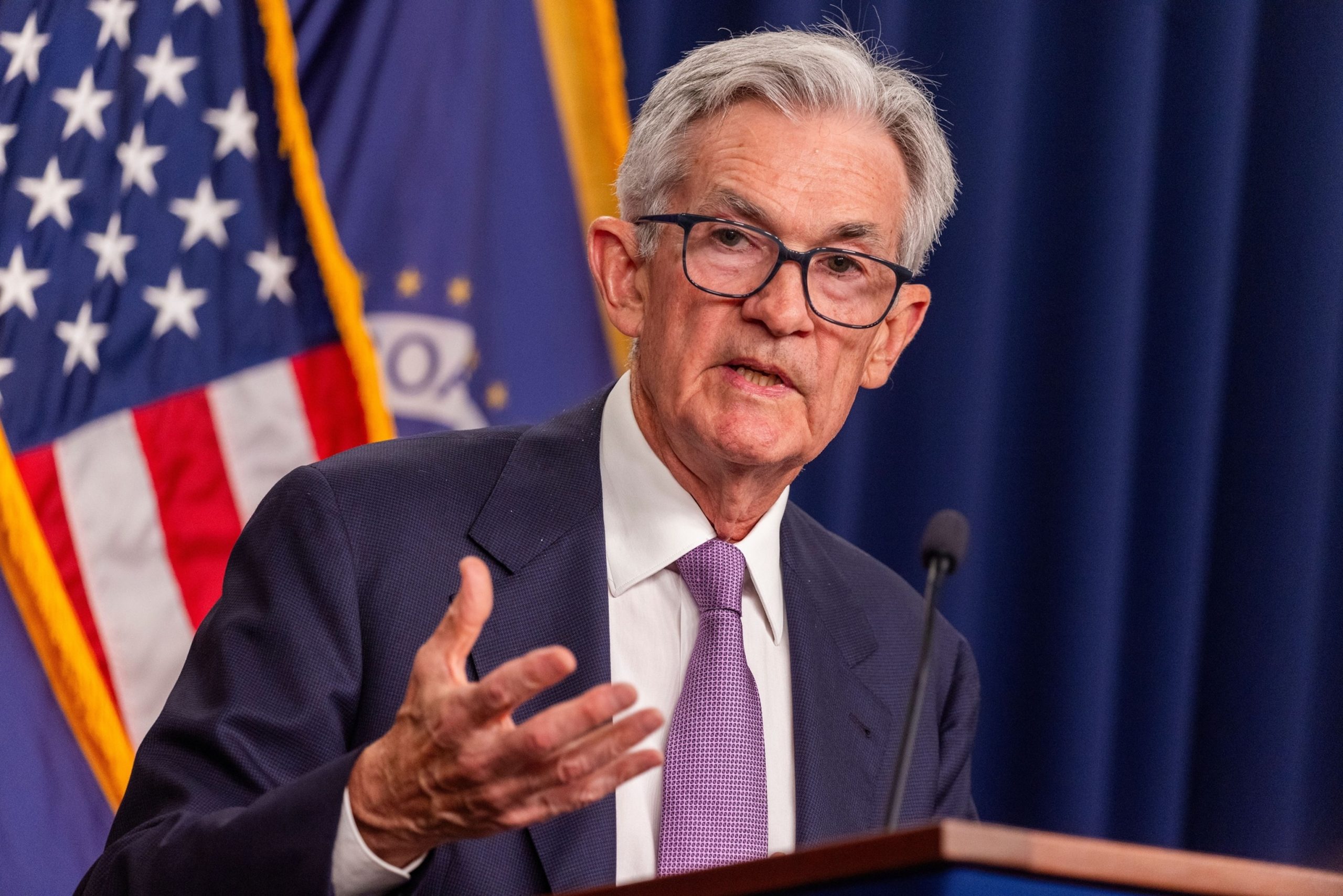
GameStop managed to narrow its losses in the first quarter, but the video game retailer’s revenue fell as sales weakened for hardware and accessories, software and collectibles.
The results were released shortly after the man at the center of the pandemic meme stock craze, who is known as “Roaring Kitty” on social media platforms YouTube and X, disclosed that he’ll be hosting a YouTube livestream on Friday.
GameStop Corp. lost $32.3 million, or 11 cents per share, for the period ended May 4. A year earlier, it lost $50.5 million, or 17 cents per share. Its adjusted loss was 12 cents per share.
Quarterly sales dropped to $881.8 million from $1.24 billion a year ago.
The company, which was anticipated to release its quarterly results on Tuesday, said that it would not be holding a conference call on Friday to discuss its financial performance.
GameStop also filed paperwork with securities regulators to sell up to 75 million shares of stock. In the filing GameStop noted that between Feb. 4 and June 6, the closing price of its stock has ranged between $10.01 and $48.75, and daily trading volume ranged from 1.7 million shares to nearly 207 million shares. “During such period, we did not experience any material changes in our financial condition or results of operations that would explain such price volatility or trading volume.” Going back to January 2021, “the market price of our common stock has seen extreme price fluctuations that do not appear to be based on the underlying fundamentals of our business or results of operations.”
In premarket trading, GameStop shares swung from a hefty gain to losses of about 7% at $43.10 after the earnings report.
GameStop’s disclosures of its first-quarter financials and stock sale come after Keith Gill, better known as “Roaring Kitty,” announced that he’d be hosting a YouTube livestream at noon ET on Friday. Investors that follow the company’s stock will be looking to see if Gill talks about his position in GameStop’s shares, as earlier this week there was speculation that he may own a large number of shares of the video game retailer that may be worth millions.
Gill also goes by the name Deep F- – – – – – Value on Reddit. Late Sunday, the Reddit account shared a screenshot in the r/SuperStonk forum that people are speculating could be an image of the shares and call options Gill holds in GameStop. The image showed that Gill may hold 5 million shares of GameStop that were worth $115.7 million as of the closing price on Friday. The screenshot also showed 120,000 call options in GameStop with a $20 strike price that expires on June 21. The call options were bought at around $5.68 a piece.
In addition, Gill’s account on X posted a picture of a reverse card from the popular game Uno on Sunday night. There was no text accompanying the image.
That activity came about three weeks after Gill appeared online for the first time in three years, spiking the price of GameStop at the time. In May, the “Roaring Kitty” account posted an image on X of a man sitting forward in his chair, a meme used by gamers when things are getting serious.
The post on X was followed with a YouTube video from years before when Gill championed the beleaguered company GameStop saying, “That’s all for now cuz I’m out of breath. FYI here’s a quick 4min video I put together to summarize the $GME bull case.”
GameStop in 2021 was a video game retailer that was struggling to survive as consumers switched rapidly from discs to digital downloads. Big Wall Street hedge funds and major investors were betting against it, or shorting its stock, believing that its shares would continue on a drastically downward trend.
Gill and those who agreed with him changed the trajectory of a company that appeared to be headed for bankruptcy by buying up thousands of GameStop shares in the face of almost any accepted metrics that told investors that the company was in serious trouble.
That began what is known as a “short squeeze,” when those big investors that had bet against GameStop were forced to buy its rapidly rising stock to offset their massive losses.
GameStop, the popular video game retailer, recently reported a decline in revenue for the first quarter of the year. The company cited weakening sales across all of its product categories, including hardware, accessories, software, and collectibles.
One of the main factors contributing to GameStop’s revenue decline is the overall shift in consumer behavior towards digital downloads and online purchases. With more and more gamers opting to download games directly to their consoles or PCs, physical sales of hardware and software have been on the decline. This trend has been particularly pronounced in recent years, with the rise of digital storefronts like Steam, PlayStation Store, and Xbox Live Marketplace.
In addition to the decline in hardware and software sales, GameStop also saw a decrease in sales of accessories and collectibles. This can be attributed to a number of factors, including increased competition from online retailers like Amazon and eBay, as well as a general slowdown in consumer spending on non-essential items.
Despite these challenges, GameStop remains optimistic about its future prospects. The company has been making efforts to diversify its revenue streams by expanding into new areas such as esports, game publishing, and collectible trading cards. GameStop has also been investing in its online presence, with a focus on improving its e-commerce platform and digital marketing efforts.
In a statement accompanying the earnings report, GameStop CEO George Sherman acknowledged the challenges facing the company but expressed confidence in its ability to adapt and thrive in the rapidly changing retail landscape. “While we continue to face headwinds in our core business, we are confident that our strategic initiatives will position GameStop for long-term success,” Sherman said.
Overall, GameStop’s 1Q revenue decline serves as a reminder of the challenges facing traditional brick-and-mortar retailers in the digital age. As consumer behavior continues to evolve, companies like GameStop will need to innovate and adapt in order to stay competitive and remain relevant in the ever-changing retail landscape.


